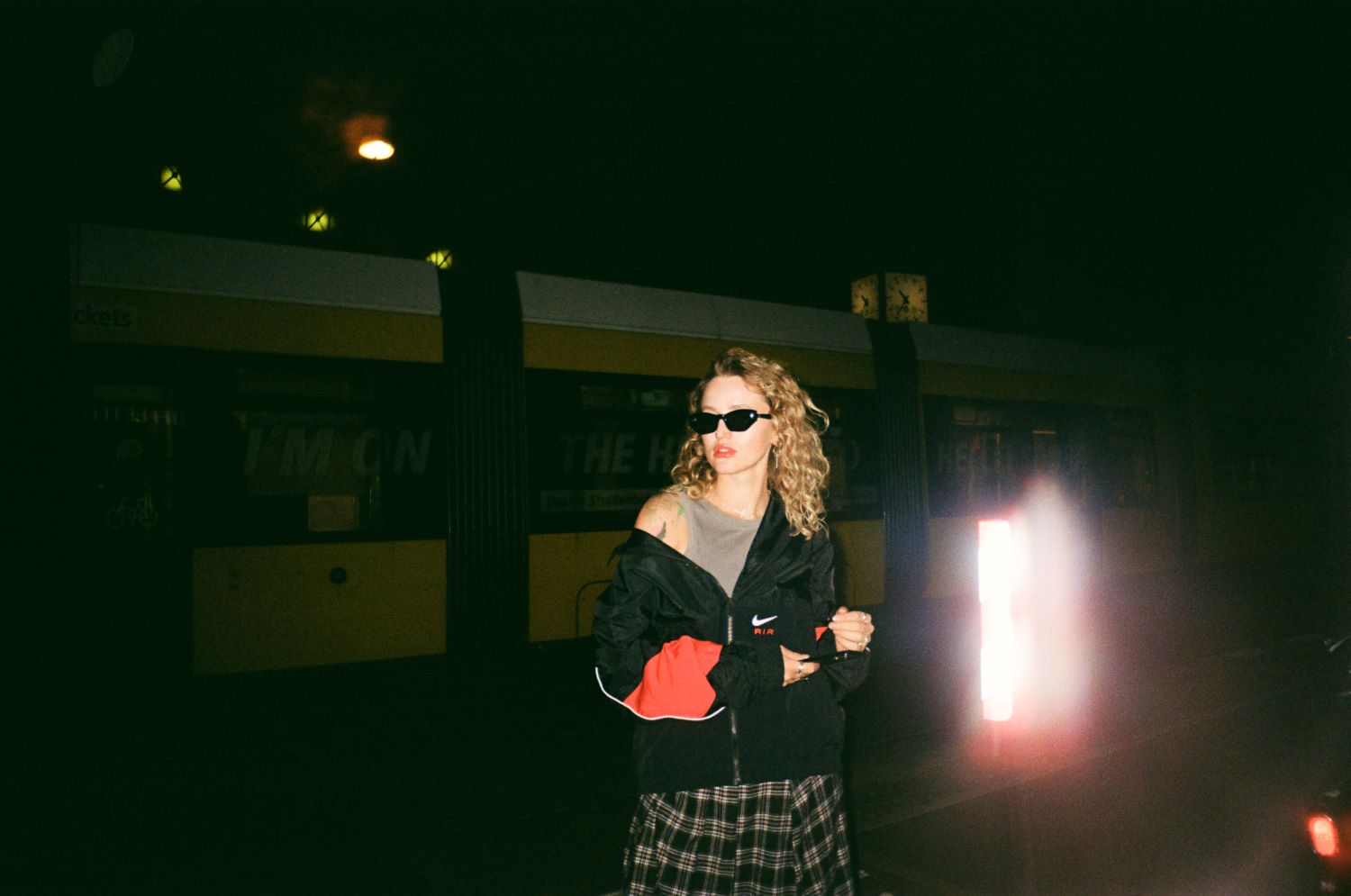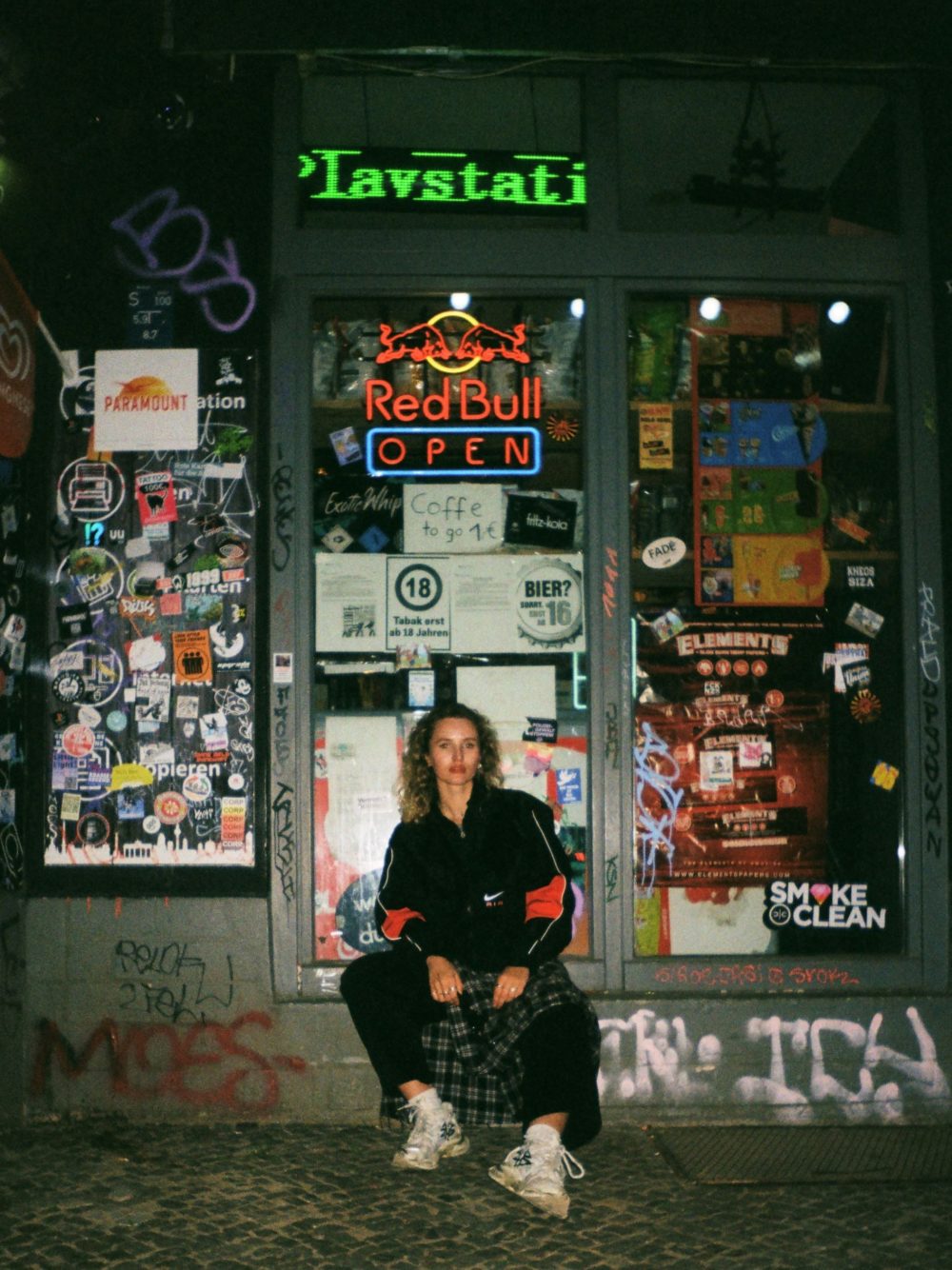
Anastasia Zems doesn’t just play music—she performs it. With a background in jazz vocals, theater, and dance, her approach to DJing and production is as intuitive as it is refined. Whether she’s recording raw, first-take vocals in the studio or pushing the boundaries of a dancefloor with trance-inflected techno, Anastasia crafts moments that feel both deeply personal and unapologetically physical. Her releases on labels like Hard Fist, Les Yeux Orange, Ransom Note, and now Human Endeavour reflect not just a sound, but a sense of artistic alignment—of shared values, risk-taking, and emotional weight.
For this edition of our Mixed By series, Anastasia delivers an exclusive mix that captures the same energy and emotional depth that define her live sets. Alongside the mix, she opens up about her creative process, the evolution of her sound, and why true collaboration matters more than label size. As her style continues to move toward faster, high-impact territory, one thing remains constant: it’s all about connection, movement, and making people feel something.
INTERVIEW

Your background in singing, dance, and theater clearly shapes your musical output. How do these disciplines still influence your approach to DJing and producing today?
My roots in jazz vocals probably shape me the most. I’m always pushing to bring more of my own voice into the mix—actual singing, not just talking or chopped-up phrases—but it’s tricky, because I’m not trying to turn a dance track into a pop song. Dance and theater taught me what it really means to perform, and how a track needs to hit if you want people to move. If I find myself dancing to a demo after I’ve made it, that’s how I know I’m on the right track.
Your music feels deeply intuitive, often featuring first-take vocals and raw emotional textures. Can you tell us more about your process in the studio — do you follow a structure or is it purely instinctual?
It usually starts with drums and a solid bassline—that’s my foundation. From there, I dive into melodies, sound design, synthesis… that part is quite structured. But everything that happens after is pure magic. I hit play and record vocals without any written lyrics or pre-planned melody. The goal is to feel what the track is trying to say, then the words just come to me. I pick the strongest takes and build from there. And I’ll be honest, being able to work that instinctively didn’t just happen overnight. I’ve been doing music since I was four, so this intuition is really the result of years of vocal training and experience.
You’ve released on labels like Hard Fist, Les Yeux Orange, Ransom Note, and now Human Endeavour. What draws you to a label, and how do you choose who to collaborate with?
Shared values are everything to me. I need to feel like it’s a true collaboration, that the label is actively involved in the release. Honestly, I’d rather put out a track with a smaller label that’s been with me from the first demo through the artwork and promo strategy, than work with a bigger name that just drops the track and disappears. What’s the point otherwise?
I think a lot of fellow artists will relate, you spend months, sometimes years, crafting something in the studio. It deserves more than just showing up on streaming platforms and getting buried when the next release comes out two weeks later.
The blend of trance, techno, and progressive elements in your work is very distinctive. How would you describe the sound you’re currently building — and where do you see it evolving in 2025?
I think a lot of people still remember me for the slower, moodier stuff I used to play and produce. But with time, I realised that locking myself into one genre just doesn’t make sense, especially when you’re trying to move a dancefloor. Now I focus on what works in the moment: trance, techno, Chicago house, progressive, garage… if it hits, it fits. For me, it’s all about reading the room, building tension, releasing energy, and keeping people in that zone where they don’t want to stop dancing. That’s the only thing I care about.
You’ve toured extensively across Europe. How do different dancefloors — say, Lisbon vs. Berlin — shape the way you play or prepare a set?
I’d say it’s less about the city and more about the specific dancefloor, because even in the same club, with a similar lineup, the vibe can shift completely. Everything plays a role: the weather, other parties happening that night, a million little factors. But one thing I can say for sure: Berlin gives me the most freedom to experiment. That city feels built for the unexpected, for the weird and wonderful. It’s where I can really take risks and go with the flow.
“Human Nature” on Ulla Records showcased a heavier, acid-tinged side of your sound. What inspired this release, and how do you decide what kind of energy to channel into a record?
That’s true. Honestly, with this release, I wanted to mark a new “me.” It was an attempt to look at my music from a fresh perspective and have an honest conversation with myself: “What do I really want to play? What do I want to dance to?”
Plus, everything in my life was turned upside down while I was working on this EP, it became a way to channel that energy and release it in some form. I think the main idea behind this release was to explore and try something different.
We read that you often rely on your intuition when creating or performing. How do you stay connected to that instinct in the high-pressure, fast-paced environment of club culture?
It’s definitely challenging. I’d say the more you grow as an artist, the more you feel the pressure from the industry. I’d be lying if I said I don’t have doubts sometimes, but I try to listen closely to my inner self and my intuition. Some days I feel more inspired, others less, but that’s just part of the creative process.

What kind of stories or emotions do you hope listeners take away from your sets and productions?
I love it when the audience is genuinely interested in what I’m doing, especially nowadays, in the age of fast content and 30-second clips. Getting someone to listen to a full hour-long set or an entire track is no easy task. For me, the highest compliment is knowing that my tracks are recognizable and make people feel something.
Are there any artists, scenes, or movements right now that you feel particularly inspired by?
Among promo crews, I’m really into the Parisian collective HORS-SOL and Berlin’s HEISSS—that’s what comes to my mind first.
As for artists, I’m currently keeping an eye on In2stellar, Deaf Toucan, and probably Cristofeu.
Overall, I’m really excited about the French and Belgian scenes. Also, Australian artists have been breaking into lineups everywhere with their unique, fresh sound. It’s amazing to see the geography of great events expanding, and I always look forward to discovering new sounds.
Finally, what can we expect from you in the coming months — any upcoming releases, collaborations, or live shows you’re especially excited about?
In June, you can find me in Ankara, Berlin, Paris, and Copenhagen. I haven’t explored the Danish scene yet, so I’m really curious to see how my debut there will go.
Release-wise, I’m working on a new EP that should be out by Autumn but overall, I would like to slow down a bit on releasing music and focus on creating a live show. That’s what I think would be a next step for me as an artist.


